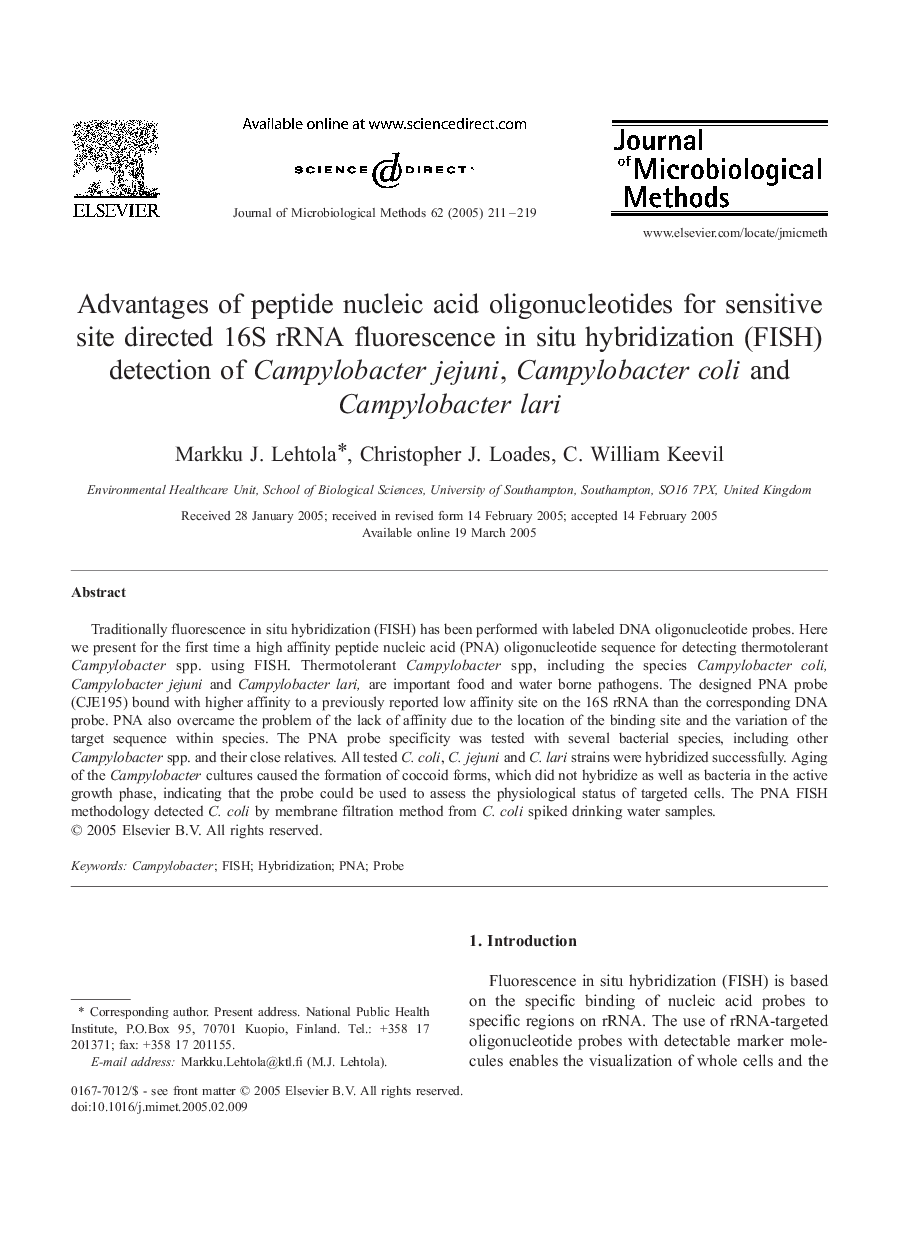| Article ID | Journal | Published Year | Pages | File Type |
|---|---|---|---|---|
| 10889891 | Journal of Microbiological Methods | 2005 | 9 Pages |
Abstract
Traditionally fluorescence in situ hybridization (FISH) has been performed with labeled DNA oligonucleotide probes. Here we present for the first time a high affinity peptide nucleic acid (PNA) oligonucleotide sequence for detecting thermotolerant Campylobacter spp. using FISH. Thermotolerant Campylobacter spp, including the species Campylobacter coli, Campylobacter jejuni and Campylobacter lari, are important food and water borne pathogens. The designed PNA probe (CJE195) bound with higher affinity to a previously reported low affinity site on the 16S rRNA than the corresponding DNA probe. PNA also overcame the problem of the lack of affinity due to the location of the binding site and the variation of the target sequence within species. The PNA probe specificity was tested with several bacterial species, including other Campylobacter spp. and their close relatives. All tested C. coli, C. jejuni and C. lari strains were hybridized successfully. Aging of the Campylobacter cultures caused the formation of coccoid forms, which did not hybridize as well as bacteria in the active growth phase, indicating that the probe could be used to assess the physiological status of targeted cells. The PNA FISH methodology detected C. coli by membrane filtration method from C. coli spiked drinking water samples.
Related Topics
Life Sciences
Biochemistry, Genetics and Molecular Biology
Biotechnology
Authors
Markku J. Lehtola, Christopher J. Loades, C. William Keevil,
